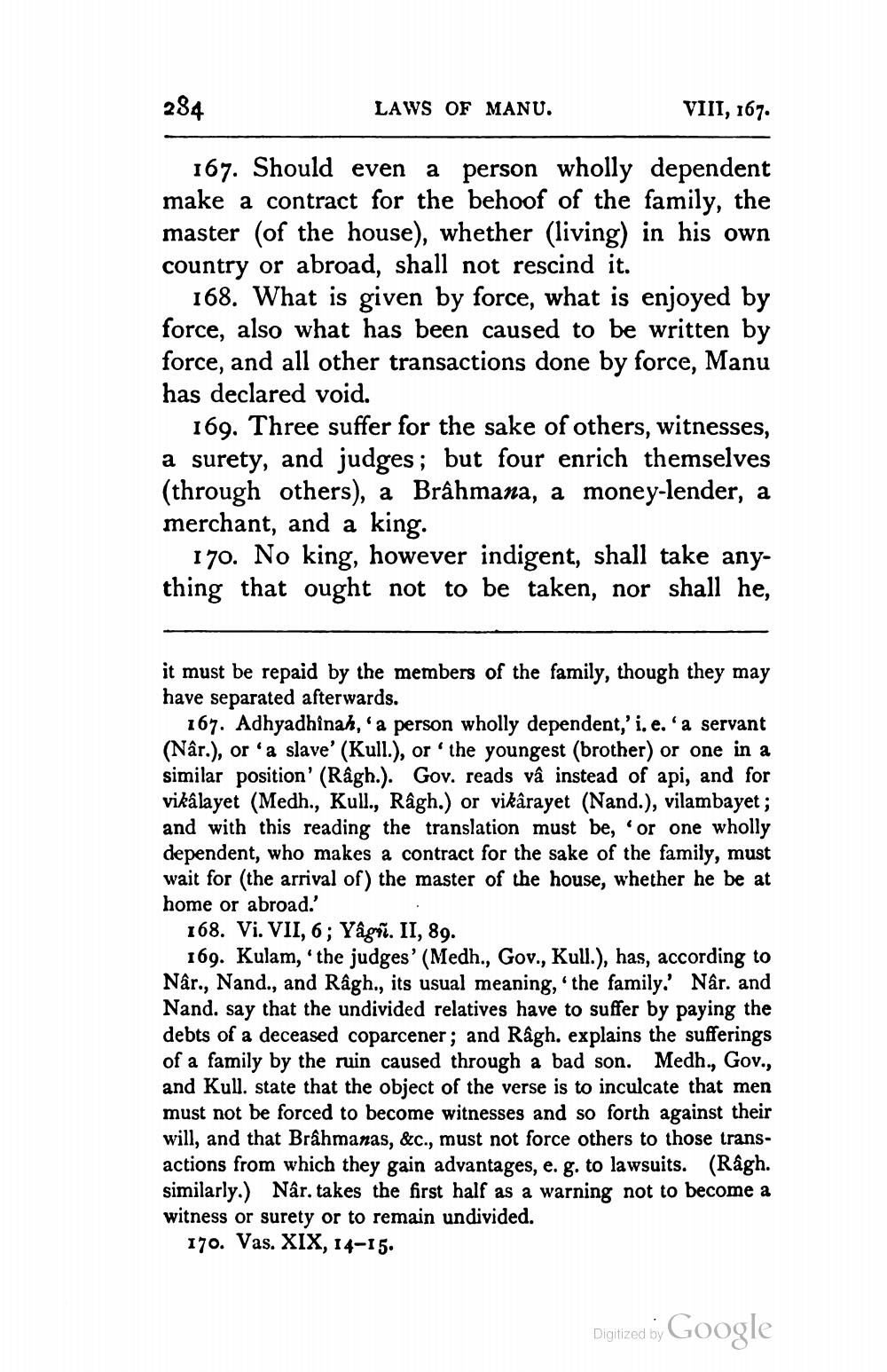________________
284
LAWS OF MANU.
VIII, 167.
167. Should even a person wholly dependent make a contract for the behoof of the family, the master (of the house), whether (living) in his own country or abroad, shall not rescind it.
168. What is given by force, what is enjoyed by force, also what has been caused to be written by force, and all other transactions done by force, Manu has declared void.
169. Three suffer for the sake of others, witnesses, a surety, and judges; but four enrich themselves (through others), a Brahmana, a money-lender, a merchant, and a king.
170. No king, however indigent, shall take anything that ought not to be taken, nor shall he,
it must be repaid by the members of the family, though they may have separated afterwards.
167. Adhyadhinah, a person wholly dependent,' i.e.'a servant (Nâr.), or a slave' (Kull.), or 'the youngest (brother) or one in a similar position' (Râgh.). Gov. reads vâ instead of api, and for vikâlayet (Medh., Kull., Râgh.) or vikârayet (Nand.), vilambayet ; and with this reading the translation must be, 'or one wholly dependent, who makes a contract for the sake of the family, must wait for the arrival of the master of the house, whether he be at home or abroad.'
168. Vi. VII, 6; Yågs. II, 89.
169. Kulam, the judges' (Medh., Gov., Kull.), has, according to Nar., Nand., and Râgh., its usual meaning, the family,' Nâr. and Nand. say that the undivided relatives have to suffer by paying the debts of a deceased coparcener; and Râgh. explains the sufferings of a family by the ruin caused through a bad son. Medh., Gov., and Kull. state that the object of the verse is to inculcate that men must not be forced to become witnesses and so forth against their will, and that Brahmanas, &c., must not force others to those transactions from which they gain advantages, e. g. to lawsuits. (Ragh. similarly.) Nar. takes the first half as a warning not to become a witness or surety or to remain undivided.
170. Vas. XIX, 14-15.
Digitized by Google




